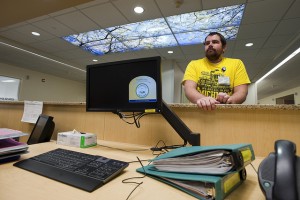Times have changed in hospitals. For decades, hospitals built a tradition of never asking for money up front. That meant that people coming in for service or treatment were not bothered with money.
While this sounds like a humane approach — who wants to ask someone coming in for medical help for payment? — it has become a challenge for the business end of hospitals. Today, hospital managers are doing everything they can to reduce accounts receivable and increase cash flow, necessary measures to keep hospitals in business to continue providing care.
Changing of the Desk
Insurance plans now have co-pays that should be collected. Technology has improved, enabling providers to estimate amounts that will be due after insurance pays their liability. The place to get this started is point of service/pre-admission.
Personnel trained to do one thing may now be asking for payment. It’s a challenge because it is different. It’s often more difficult for employees who have been with the company longer, teaching an old dog new tricks, as they say. If your hospital is hiring new people for the desk, be sure to include this as part of the job requirements. Some people just have trouble asking for money and it should be discussed in initial interview with a potential employee.
Teaching the Ask
The front desk is just as much a part of the overall patient experience as any interaction with the health care team. But more than that, the front desk is the initial experience. That’s why it’s crucial to teach front desk team members that the first impression will set the stage for a person’s entire experience.
Keep in mind that a person approaching the front desk at a hospital is altered in some way and may be experiencing:
- Anxiety
- Fear of the unknown
- Fear of the outcome
- Financial burdens
- Other related issues
Your front desk team needs to treat each person as the most important task of the day. Your attention and care is solely focused on them.
Building trust begins with a greeting, a critical opener. Greetings should be warm, friendly, and caring. The front desk should never appear too busy to give attention to the person standing before them.
What is the absolute worst comment that can be made to a patient or family member at anytime during the patient experience? “We’re so short staffed today.”
That implies you are too busy for me, don’t have time, and that I’m not important.
Customer Service
Good customer service begins with productive engagement. Consider each interaction with someone. The tone of voice, the way the question is phrased, and facial expressions will all add up to how a person responds to the front desk’s request for payment. Each person working at the front desk needs to treat individuals as just that — an individual with a unique situation. Other tips for productive engagement:
- Get the right information.
- Listen closely; clarify if necessary.
- Ask only the appropriate questions.
Most importantly, no judging. As humans, we all tend to judge one way or another, but we certainly don’t want this to come across as we interact with people who need medical help.
How to Ask
Once your desk team understands that the question must be asked, it’s time to work on how they ask. Consider the following two options:
“Will you be paying your co-pay of $250.00 today?”
OR
“Your co-pay today is $250.00. We can take a debit or credit card.”
The first option gives the patient an opportunity to say, “no.” If that opportunity exists, more people will take it. The second option is a better approach because it does not allow an easy or fast way to say no.
Even if the person is unable to pay, the representative will realize it and can then work to find financial assistance or other options.
Final Thought
What makes interacting with some front desk teams or customer service people great is their attitude. We notice people who shine, exude positivity, seem attentive, help us carefully, and work consistently. Can you say that about your front desk staff?



